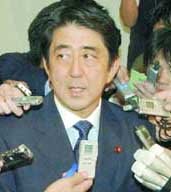The British Problem
Endangering our Xenophobic Melting Pot, Threatening Subject-Verb Relationships
While we are sleeping, something terribly wrong is happening at America’s borders: Britain are coming! Britain are coming!
This happens to be the worst national security crisis facing our nation. Americans are at risk of having high-paid jobs stolen by legal as well as illegal aliens from the British Isles. British capital is the overwhelmingly dominant leader in direct foreign investment. Brits already own landmark properties here. The country ranks near the top of foreign nations snatching up our treasury securities, and it has the power to undermine our financial system.
British transplants to our soil include many illegal aliens, dozens of them and maybe more, who overstay their visas and go underground to exert insidious influence on our tolerant and defenseless society. Never mind that the rock star Sting represented himself as a legal alien. There are illegal aliens in New York, and the British crooner should know that as a former member of the Police.
society. Never mind that the rock star Sting represented himself as a legal alien. There are illegal aliens in New York, and the British crooner should know that as a former member of the Police.
These British subjects are corrupting our language and culture and even infiltrating our media. Take the so called US edition of the British news weekly “The Economist,” which hides its real intent behind a thin veneer of witty commentary. Don’t you see the Fabian socialism, bred in sadistic and sexually permissive public schools (euphemistic for elitist private schools), behind the British guise of fiscal conservatism? Their Socialist prime minister has cynically portrayed himself as hawkish Bush-kissing ally.
Just look at what’s happening to the American language. The business world is saying things like “take a decision” instead of making one. In sports casting, the broken syntax of British pidgin (a Germanic lingo with affected French words) is creeping into local vernacular.
Taking a cue from BBC announcers who report on “football matches” (sic), we are beginning to mix up our subject-verb agreements. They say “Liverpool are on a winning streak,” and “Italy are headed for the World Cup finals.” I can’t stand it. So now we’re starting to say “Detroit are the favorite in the World Series” and "Oakland aren’t playing well this season.” If we don’t keep our guard up, we’ll be putting Rs after our vowels and saying things like “the Cubs is a perennial loser.” And we’ll have to watch cricket in prime time, after suffering through programs that unleash sniffy English nannies on American families with naughty children. Wasn't Teletubbies bad enough? Uh oh . . .
People over 50 remember the British invasion of the 1960s, when girly-haired Englishmen copied American folk and blues, putting some pretty damn good US rock bands on food stamps. They unabashedly violated US intellectual property rights by reverse-engineering our native music.
Now, the potential impact on the fabric of our society is enormous when you consider the British Hoards waiting at the border. They’re ready to flood our country with white folks who will upset the fragile balance of our population’s diversity. Because they are wealthier than us, they will have more babies and skew demographics in their favor.
The risks to national security cannot be underestimated. Pretty soon, students of British descent will dominate our school systems and take the best spots in our top universities. Coddled by unofficial affirmative action programs, British women will take over our corporate board rooms, while American men hit the glass ceiling.
It’s not practical to erect a barbed wire fence across the Atlantic to hold back the armada of British interlopers. But we should alert loyal citizens to be on guard for suspicions white people with funny accents at airports and rail stations, and be on the lookout for men carrying little European purses. We need vigilantes to patrol the border with Canada, so that no subjects of the Queen of England can sneak across to our homeland.
It’s widely known that Britain had ambitions of global hegemony in the past, and has never apologized to its victims. It even abused its own British colonists on these shores. Britain are at out doorstep, and we has a duty to stop the menace now, before it is too late.
#


